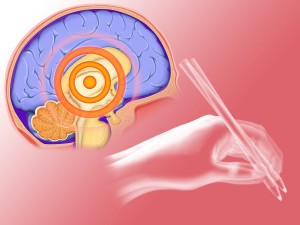Contact Us




Parkinson’s Disease is a degenerative disease in which brain cells (neurons) are affected. While it is most commonly associated with motor symptoms such as tremors, rigidity, postural instability, difficulty walking, etc., Parkinson’s is also accompanied by non-motor symptoms such as disturbances in the sense of smell, sleep problems, depression, anxiety and cognitive changes.
In many cases of Parkinson’s Disease, a substantial decline in cognitive functioning also results. These cognitive changes often lead to deterioration in memory and thinking. When problems in memory and thinking are severe enough to interfere with daily living activities, then the syndrome is called Parkinson’s Disease Dementia (PDD).
Symptoms of Parkinson’s Disease Dementia
The acronym ‘TRAP’ summarizes the common symptoms of Parkinson’s Disease:
The following are some of the symptoms that develop as a person develops Parkinson’s disease dementia:
The difference between Alzheimer’s and Parkinson’s
People with Alzheimer’s always develop Dementia over time. However, people with Parkinson’s may or may not develop Dementia. When people with Parkinson’s do develop a dementia, it can be even more debilitating. This is because people with Parkinson’s suffer from a combination of motor and cognitive impairments. In terms of cognitive effects of dementia, Alzheimer’s affects more of language and memory, whereas Parkinson’s affects more of problems solving, thinking speed, memory and even mood.
What Causes Parkinson’s Dementia?
The chemistry of the brain changes in all dementia’s including Parkinson’s Disease Dementia. Parkinson’s dementia is caused by sticky clumps of protein alpha synuclein that malfunction and deposit in the brain. Deposit of alpha synuclein in the brain is also a common cause for Lewy Bodies Dementia.
Commonly, dementia develops 10 to 15 years after a diagnosis of Parkinson’s. When the diagnosis of dementia precedes or is given at the same time as the diagnosis of Parkinson’s, it is known as Dementia with Lewy Bodies. However, when a diagnosis of Parkinson’s comes first and dementia develops at least a year after Parkinson’s, it is known as Parkinson’s Disease Dementia. Some people may develop Lewy Bodies Dementia independent of Parkinson’s Disease but Parkinson’s Disease Dementia happens only to people who already have Parkinson’s.
Some factors that increase a person’s risk of getting Parkinson’s Disease Dementia are mentioned below. While they may not individually be a high risk, presence of a greater number of these factors can increase the risk:
Tips for Caregiver of people with Parkinson’s Dementia
As a caregiver you try to love and support your loved one with Parkinson’s Dementia in the challenges they face. One task is to improve their quality of life. Educating yourself about the symptoms, available treatment options, and what to expect in the time to come will aid you in creating a better support system.
Behavioural symptom management
Bathing
Self-grooming tasks
Toilet Visits
Dressing
Eating
Ambulation
Handwriting
Exercise
We at Samvedna Care aim to help seniors live happy, active and independent lives, in the comfort of their home and community through interactive caregiving.
Samvedna Care was established in October 2013 with two complementary goals – firstly to provide quality home care services to seniors with limited mobility or dementia and hence social interaction, and secondly to facilitate stimulating community interaction and participation.
Our Dementia Care services are –
At-home services –
Dementia intervention activities by trained Care Specialists (already mentioned above). These services are available in Delhi NCR
More – Dementia Care
Please call us for more info – Delhi NCR – 98184 21446, 124 4229659
Dementia Support Group –
Our Dementia Support group in Delhi NCR is a platform for caregivers to share feelings and support each other.
Please call us for more info – Delhi NCR – 98184 21446, 124 4229659
Cognitive Wellness Programme, Sector 57 Gurgaon –
Samvedna’s Cognitive Wellness Programme is designed for seniors with mild cognitive impairment, early dementia or Parkinson’s, and elderly lacking in enthusiasm and motivation. The aim is to stimulate the mind of the elderly to slow the progression of the disease or impairment. The sessions are 3 days a week, 11AM-1PM.
General Wellbeing:
With our General Well Being Services we aim to raise the quality of life of seniors, specially those who may have limited mobility and social interaction due to various constraints. Our interactive programme keeps them active and engaged through physical, mental and social activities, all in the comfort of their home.
More- Elder Care